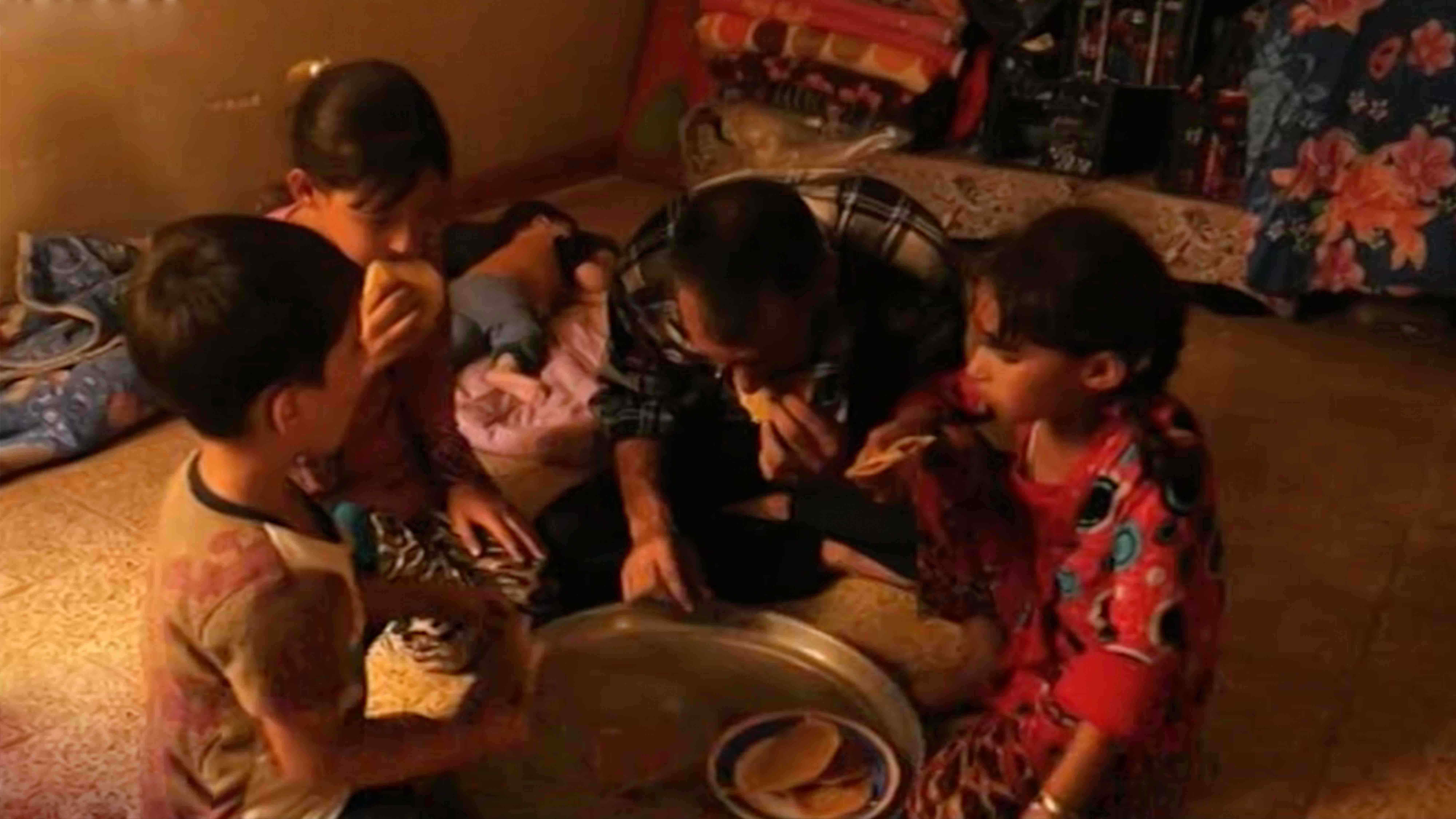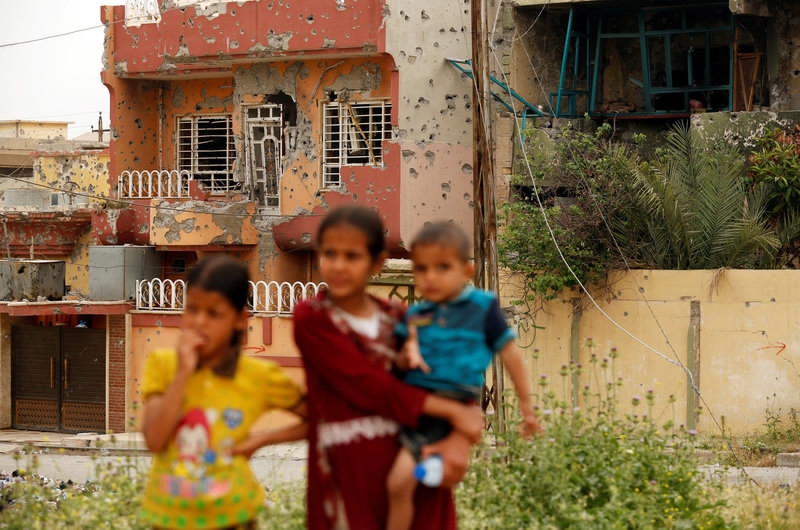
China
23:19, 30-Sep-2017
The Big Picture: Without school, children of Mosul fight poverty after war
By Tony Cheng

Homework is a distant dream for 10-year-old Aya.
She said she wants to become a doctor one day. But instead of hope, she said it with a sigh of resignation, which suggests she knows how distant that dream is.
Aya hasn't been to school for years.
In Mosul, where she lives, ISIL shut down the education system when they overran the city in 2014.
But it isn't ISIL that stands in the way of her dreams. Aya's biggest battle is against poverty.

Children stand outside a damaged building as Iraqi forces battle with ISIL militants, in western Mosul, Iraq, May 1, 2017. /Reuters Photo
Children stand outside a damaged building as Iraqi forces battle with ISIL militants, in western Mosul, Iraq, May 1, 2017. /Reuters Photo
Instead of going to school every morning, Aya, her sister Farrah, and brother Ali, head out onto the streets of Mosul to work.
Darting in between the busy traffic, they try to sell bottles of ice-cold water to commuters who try to stay cool in the fifty-degree heat.
Fifty cents a bottle, the water is too expensive for the children themselves.
It's hard work, and there's fierce competition from other children selling water, snacks and cleaning windscreens for pennies.
"We come in the morning, at midday we go home and eat, then we go back and work till night," Aya said to CGTN reporter, as she and her siblings rush among the traffic stopped at the lights.
Aya's father, Mohammed Jassem, 41, used to be employed by the municipal council in Mosul as a worker, but when he started developing epilepsy he had to stop working.
Even if he could work, all government jobs closed after ISIL's invasion in 2014, and few positions have opened up in the chaos that followed the city's liberation earlier this year.
He has no healthcare, social security, nor savings. The family doesn't even have a home, after their house was destroyed in fighting at the beginning of the year.
"In the morning when I wake up I cry...my kids have to sell water... I feel so ashamed," said Mohammed in the small room the family settles.
Their accommodation is being provided free by well wishers in East Mosul, but they have no idea how long they'll be allowed to stay.
In their room, a television set, an old fridge and some blankets, all donated stuff, are basically what the family owns.
Several months ago, a US-backed NGO provided regular food donations of fresh eggs and flour, but those hand-outs have since stopped, and the family have no idea if, or when, it will resume.
As they eat a simple meal of dumplings and vegetables, Aya's mother sits quietly at the back of the room. She only eats what the children leave behind.
The kids make a few thousand dinar every day, about five dollars, which they spend on food.
This is far from exceptional in an area where 45 percent of the population live below the poverty line.
But it is remarkable in a country that sits on some of the largest oil reserves in the world.
Economic sanctions, plunging oil prices and the war against ISIL have seen levels of poverty rise dramatically in Iraq in the past 3 years.
Across the country, 22 percent live below the poverty line, a percentage that doubles in provinces that have been affected by the war against ISIL.
For Iraqis, extreme poverty is now a growing reality.
And it is in stark contrast to the United Nations millennium goals to eradicate poverty.
It also highlights a problem for agencies like the United Nations Development Programme (UNDP) who are trying to persuade governments in conflict areas that they should divert funds from much needed infrastructure rebuilding projects, to long term poverty alleviation.
"Often we have credibility issues with the governments in place," said Ryan Meintjes, at the UNDP. "It’s difficult to convince them because their focus might be on other areas and not necessarily the people, and the evidence is quite strong that as poverty increase, people will get unhappy and take it out on the government."
That is a pattern Iraq is more than familiar with, where many remember the era of Saddam Hussein as a period of relative stability when incomes were steady and essential services worked. The problems are further compounded by corruption and mismanagement of vital resources.
Not that Aya, Farrah and Ali are able to do much about that.
After taking an hour break for lunch, and some reading practice with their Dad, they head back out onto the streets with their cooler full of water.
The only thing they look forward to is sunset, when the burning heat recedes, they can finally finish work.
6245km

SITEMAP
Copyright © 2018 CGTN. Beijing ICP prepared NO.16065310-3
Copyright © 2018 CGTN. Beijing ICP prepared NO.16065310-3